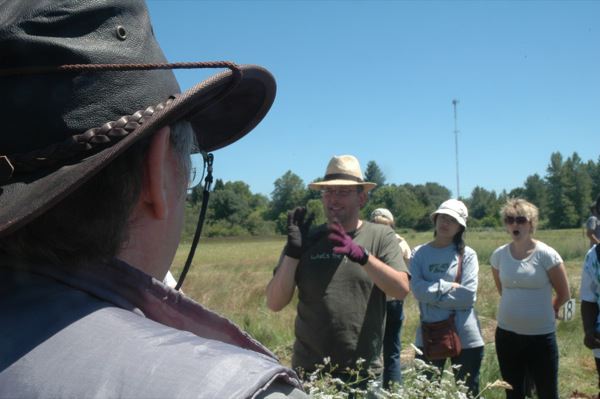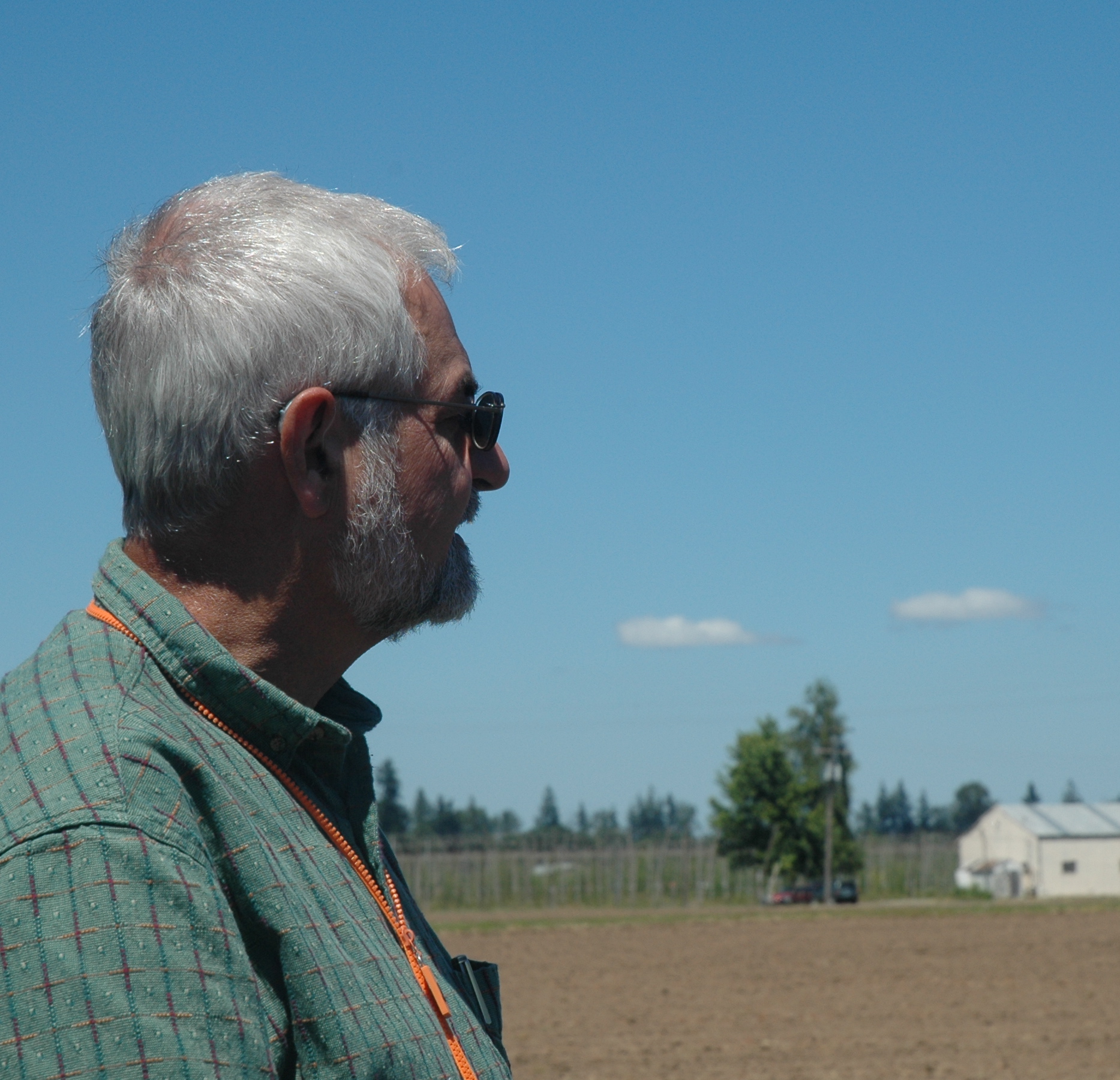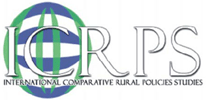by Tom Johnson 17/03/2014
The idea for the International Comparative Rural Policy Studies consortium was conceived during John Bryden’s sabbatical year at the Rural Policy Research Institute at the University of Missouri.  ICRPS was born at a meeting we organized among US, Canadian and European rural social scientists in 2002. Since then ICRPS has developed and grown through the 10 summer institutes, and numerous planning meetings and communications. ICRPS has been sustained primarily through the generosity and commitment of its faculty members and member institutions. But ICRPS could not have survived and thrived for more than a decade without financial support. Over the years numerous proposals have been written by ICRPS faculty members and several have been funded.
ICRPS was born at a meeting we organized among US, Canadian and European rural social scientists in 2002. Since then ICRPS has developed and grown through the 10 summer institutes, and numerous planning meetings and communications. ICRPS has been sustained primarily through the generosity and commitment of its faculty members and member institutions. But ICRPS could not have survived and thrived for more than a decade without financial support. Over the years numerous proposals have been written by ICRPS faculty members and several have been funded.
From 2003 to 2008 US participation was limited to the University of Missouri because of lack of funding. In 2008 a proposal to the US Department of Agriculture Higher Education Challenge program was accepted and beginning in 2009, Oregon State University and the Pennsylvania State University joined ICRPS. As this 4 year funding was ending, a new, more ambitious proposal was prepared and submitted and in 2013 we received word that our proposal had been funded.
This new project is a collaborative effort by the University of Missouri (MU), Oregon State University (OSU), Tuskegee University (TU) and the University of Alaska-Fairbanks (UAF).
The funding was designed to enhance the curricula of the four universities by allowing them to participate in the ICRPS consortium with emphasis on two priorities of the US government―sustainable energy and climate change, and to add diversity to the US faculty and students who participate in the consortium activities.
Without redirecting the focus of the ICRPS consortium, the new resources and new US member institutions can provide additional depth in sustainable energy and climate change, two areas of growing relevance to rural policy around the world. Twenty one percent of students at UAF are Alaska Natives or American Indians, with a significantly higher percentage in the programs that this proposal targets. Tuskegee University is a historically black college with a high percentage of African-American faculty members and students. Both ethnic/racial groups are underrepresented in the ICRPS consortium and in the network of US rural policy professionals.
Building on success
The new US funding builds on the success of the ICRPS program. First, the diverse and inclusive ICRPS network will become even more diverse with the addition of students and faculty from the US north and south. Second, the new program will supplement the successful ICRPS summer institutes by adding regular interaction via webinar-based seminars throughout the year. And third, the new funding will support more intensive research collaboration by allowing graduate students to spend 2 to 3 month internships at partner institutions. Finally, the project adds two unique members to the consortium. These new members are described below.
Introducing the University of Alaska-Fairbanks
The University of Alaska-Fairbanks, America’s arctic university, is the nation’s northernmost land, sea and space grant university. Its teaching, research and public service programs have an emphasis on Alaska, the circumpolar North and their diverse residents. Alaska Natives represent 21 percent of UAF’s student enrollment, and its rural campuses, which include the Bristol Bay Campus, the Interior-Aleutians Campus, and the Kuskokwim Campus, all qualify as Alaska Native-serving Institutions. UAF offers a variety of discipline-based and interdisciplinary graduate programs: Master Degree programs in Rural Development, Northern Studies, Cross-Cultural Studies, Resource and Applied Economics, a PhD in Indigenous Studies through the Center for Cross Cultural Studies and a popular and successful Interdisciplinary Studies degree program (INDS). Centers and programs at UAF include the Alaska Center for Climate Assessment and Policy, and the Alaska Center for Energy and Power.
Philip A. Loring is an adjunct faculty member in the Institute of Northern Engineering and the Center for Cross-cultural Studies at UAF and Assistant Professor in the School of Environment and Sustainability at the University of Saskatchewan, Canada. He is an ecological anthropologist with research interests in food systems, food security, environmental change, and environmental justice particularly within the context of climate change.
William E. Schnabel is an Associate Professor and Director of Water and Environmental Research Center at UAF. He is environmental engineer researching cold region surface/subsurface water and ecological quality, contaminant fate and transport, and rural water resources and waste management.
Introducing Tuskegee University
Tuskegee University has strengths in the sciences, architecture, business, engineering, and health, and d is recognized as the pioneer in serving minority populations in the US. Tuskegee University offers MS degrees in several areas including Agricultural and Resource Economics, and Environmental Sciences. It offers a new Ph.D. program in Public Policy and International Affairs (PPIA) with a specialty in comparative rural policy, agriculture and natural resources. The university is home to the Center for the Integrated Study of Food, Animal and Plant Systems and the Center for Research Excellence in Science and Technology. It is recognized as a historically minority-serving institution.
Ntam Baharanyi is Professor of Agricultural and Resource Economics at Tuskegee. He is involved in policy research and education for low-income and low-asset communities in the US as well as Senegal.
Thierno Thiam a political scientist who conducts research on the relationships between citizen, state and market in the globalized world. Professor Thiam is author of Political Leadership and the Quest for Unity and Development in Africa, 2009.
Robert E. Zabawa is Coordinator of Social Science and Rural Development Research, Coordinator of the Agricultural and Natural Resource Economics Program and Research Professor in the George Washington Carver Agricultural Experiment Station. His experience includes community and small farm needs assessment, evaluation, and program impact assessment of rural community development, rural housing, food stamp program participation, and small farm production and food safety.
The Future
The new Higher Education Challenge grant assures the strong participation and contribution of US universities for the next 3 or 4 years, and builds a strong foundation for the long term. It also provides exciting new venues for future summer institutes in North America.
 TOM JOHNSON is a founding member of the ICRPS consortium. Dr. Johnson is Frank Miller Professor of Agricultural and Applied Economics, Professor in the Harry S Truman School of Public Affairs, and Director of Academic and Analytic Programs at the Rural Policy Research Institute (RUPRI). Professor Johnson co-secured the funding to send University of Missouri students to the previous summer institutes and has taught at all but one of the institutes.
TOM JOHNSON is a founding member of the ICRPS consortium. Dr. Johnson is Frank Miller Professor of Agricultural and Applied Economics, Professor in the Harry S Truman School of Public Affairs, and Director of Academic and Analytic Programs at the Rural Policy Research Institute (RUPRI). Professor Johnson co-secured the funding to send University of Missouri students to the previous summer institutes and has taught at all but one of the institutes.
Photos: @Katja Cappelen
